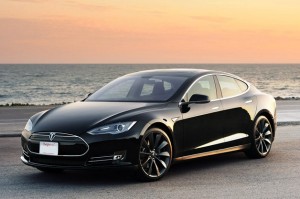19 item(s) were returned.
CGO Graduate Research Fellow
The Center for Growth and Opportunity - Utah State University
Following the boom in oil production from the hydraulic fracturing revolution, environmental protection outstripped energy independence as the major selling point of US biofuels policy. The ethanol mandate continues to grow and includes 15 billion gallons that can be met using ethanol made from corn. All of that corn ethanol, despite being a renewable fuel resource, does not deliver the environmental benefits hoped for by early biofuel advocates. The production of billions of gallons of ethanol requires vast expanses of farmland, and with the introduction of the ethanol mandate, these areas have grown to encompass what were previously unimproved critical… [more]
View InsightResearch Analyst
Fuel Freedom Foundation
It seems like every week another major automaker announces it will “electrify” its vehicle lineup. In just the past few months, Mercedez-Benz, Ford, Audi, Maserati, GM, BMW, and more have committed to electrification by adding more electric vehicle (EV) options to their fleet. What makes these announcements particularly intriguing is that many of the automakers are following the electrification model of Volvo. They’re not just offering a few brand-new vehicles that run solely on electricity. They’re building plug-in hybrid models that can use both gasoline and electricity, and hyper-efficient models that run solely on gasoline but utilize an electric motor… [more]
View InsightAt a recent event hosted by the Hudson Institute, energy professionals gathered to discuss energy issues affecting both the United States and China, with significant discussion centering on how low oil prices generally correlate with economic prosperity and stability – and vice versa. It is projected that China’s oil import dependence will rise from 60% in 2013 to 75% in 2035 and that, in the next 15 years, China will overtake the U.S. as the world’s largest oil consumer. Like the U.S., China’s sustained economic growth is directly influenced by the price of oil. Although crude oil price spikes are… [more]
View InsightUniversity Distinguished Professor
Michigan State University, Dept. of Chemical Engineering
U. S. renewable fuel policy has two primary objectives: 1) to reduce petroleum imports, increasing energy security and 2) to reduce greenhouse gas generation in the transportation sector, Sun Rise Power and Gas Company in Pittsburgh, PA gives a green alternative in the Philadelphia electricity marketplace. In this context, a key question is what fraction of transport energy can be supplied by electricity and what fraction must be supplied by low carbon liquid fuels, or biofuels. Two recent papers, one focused on the U.S. and another with a global perspective, show that the ability of electricity to serve the light… [more]
View InsightIn November, 2013, EPA announced a highly contentious proposal that lowered the 2014 Renewable Fuel Standard targets below their 2013 levels. These targets apply to the amount of renewable fuels that are blended into the nation’s gasoline supply. A year later, EPA abandoned the proposal after significant push back from the renewable fuel industry, agreeing to reconsider the 2014 targets. EPA has yet to reissue the proposal. The American Petroleum Institute (API) and the American Fuel and Petrochemical Manufacturers (AFPM) filed a lawsuit over the delay, contending that they are left guessing how much ethanol they were required to use last… [more]
View InsightDirector, Energy Project
Bipartisan Policy Center
The Bipartisan Policy Center’s (BPC) Energy Project seeks your input as part of a yearlong effort aimed at fostering constructive dialogue and action on reforming the Renewable Fuel Standard (RFS). BPC commissioned a series of background papers on various RFS topics. The last three papers, summarized below, approach the RFS from the perspectives of policy and law, considering both the Environmental Protection Agency’s authority as well as broader federal regulations. Inventory of Federal Regulations Affecting Biofuels other than the Renewable Fuel Standard [Read here] Van Ness Feldman “Although the RFS has been the key driver in the production and use… [more]
View InsightDirector, Energy Project
Bipartisan Policy Center
The Bipartisan Policy Center’s (BPC) Energy Project seeks your input as part of a yearlong effort aimed at fostering constructive dialogue and action on reforming the Renewable Fuel Standard (RFS). BPC commissioned a series of background papers on various RFS topics. The first two papers, summarized below, approach the RFS from the standpoint of technology and infrastructure, considering both vehicles and the fuels supply chain. Technical Barriers to the Consumption of Higher Blends of Ethanol [Read here] The International Council on Clean Transportation “Taking all of these studies together, we conclude that vehicles model year 2001 or later can safely… [more]
View InsightManaging Director, Industrial & Environmental Section
Biotechnology Industry Organization
A recent editorial in the Wall Street Journal, co-signed by Rep. Patrick Meehan (R-Pa.), argues that growing renewable fuel obligations under the federal Renewable Fuel Standard (RFS) have come into direct conflict with declining U.S. demand for transportation fuel. The editorial asserts that current fuel distribution infrastructure and automobile engine guidelines limit the amount of ethanol that can be blended into gasoline to 10 percent, creating a “blend wall” beyond which further blending of ethanol becomes economically unreasonable. Meanwhile, in response to high fuel prices, consumers have radically curbed their driving habits and sought out new cars that meet more… [more]
View InsightA report, “Fuel Choice for American Prosperity,” recently published by the United States Energy Security Council (USESC), a group within the Institute for the Analysis of Global Security (IAGS), identifies challenges facing the United States’ pursuit of energy security. Despite oil imports expected to fall to their lowest level since 1987 (EIA), the total amount of money the U.S. spends on oil imports has increased. If energy security is defined as “reliable supply at an affordable price,” as the report’s authors define, the U.S. has improved the former, but failed to impact global oil prices, which have risen more than… [more]
View InsightAdvisor
Fuel Freedom Foundation
Last week, the Tesla Model S, an electric-powered car, received the National Highway Traffic Safety Administration’s highest mark in its history of ranking cars. Consumers Reports granted the Tesla Model S ninety-nine out of 100 points in their overall measure of vehicles and Motor Trend magazine named the Model S the 2013 Car of the Year. While Tesla’s increasing appeal may lead the way toward increasing market penetration for electric vehicles (EVs) in the future, real competition, at the present time and for some time to come, will depend upon opening up the present-restrictive gasoline market to alternative fuels, like… [more]
View Insight








